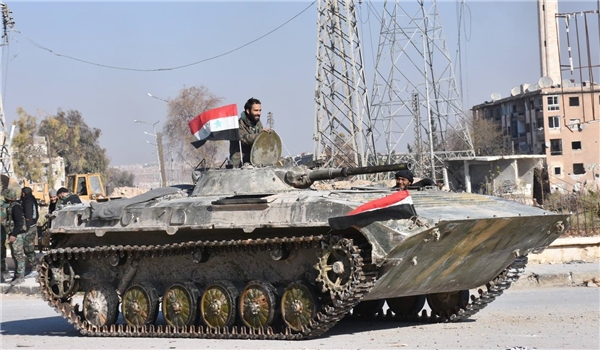
RNA - Raqqa was the self-declared capital city of ISIL, but occupied by US-backed Kurdish and Arab proxy forces after over a year of operations in the area. Kurdish leaders are now under the illusion that they can keep control of the Syrian city and that it will be part of “federalized” Syria.
However, as maintained by Velayati, the US is trying to “divide” Syria by keeping their occupying troops east of the Euphrates River. To this end, the War Party has helped the Kurds occupy broad swathes of Syrian land outside of the Kurdish territory. Meaning, Syria and the Kurds probably are eventually going to have a fight over post-ISIL Syria borders - just as Iraq and Iraqi Kurdistan had. On that note:
-Attempts by Catalonia and Iraqi Kurdistan to break free backfired, posing sobering lessons for other foreign-backed separatists and those who rule them. The failed secessionists are now desperately trying to exhibit flexibility, but the bluff is called.
-Without question, the organizers of the twin separatist referenda miscalculated by ignoring warnings of a harsh reaction from the central governments and the international community. Rather than enjoying democratic freedoms under their national constitutions, what were once semi-autonomous regions with substantial powers are left with little or none. They will never get any back and they have no one to blame but themselves.
-The same scenario has now happened in Syria, where the US and its separatist proxies have occupied the city of Raqqa. Under international law and unless they withdraw peacefully, the central government in Damascus has every right to act decisively to punish the US-backed separatists, and send in troops to seize the city, and the oil fields and territory around it.
-There should be no double standards here. The rule of law applies everywhere on planet earth. After all, in Spain, Madrid sent police, who beat up hundreds of separatist Catalan voters on October 1. It then sacked the separatist provincial government and parliament and imposed direct rule. Madrid even jailed nine Catalan ministers for disobedience.
-Kurdish secessionists in Syria still have the chance to limp away quietly and forget the sorry chapter. The fiascos in Iraq and Spain should trouble them as they might be contemplating exit strategies. This has nothing to do with political chaos or the central government facing restive ethnic minorities. The US-backed secessionists are shortsightedly stubborn, which gives every right to Damascus to force integration. That’s what Britain did with Scotland, and Canada with Quebec. That’s how Switzerland achieved its fabled peace in the last century. The same just happened in Iraq and Spain. International law is international law.
-For sure, there are peeved ethnic groups and scattered populations everywhere, even with some local support for their separatist agenda. However, that does in no way mean they can cling to grievances, get arms and munitions from outside powers, occupy other cities and territories that belong to other ethnic groups, and continue to be confrontational at the expense of national peace, security and unity.
-Valuable resources like oil that exist in certain parts of the country belong to the whole nation. They should never be diverted to benefit certain ethnic groups and their leaders, much less benefit a new state. No ethnic group, including the Kurds, is entitled to more monetary fruits after the fight to push out ISIL from Syria.
As a general rule, the international civil society rejects the legitimacy of separatist movements and supports national governments in protecting their territorial integrity. While the charter of the UN embraces the principle of self-determination and the right to have more local powers, in practice no international laws permit an ethnic group, in this case the Syrian Kurdish community, to sever itself from the whole.
847/940